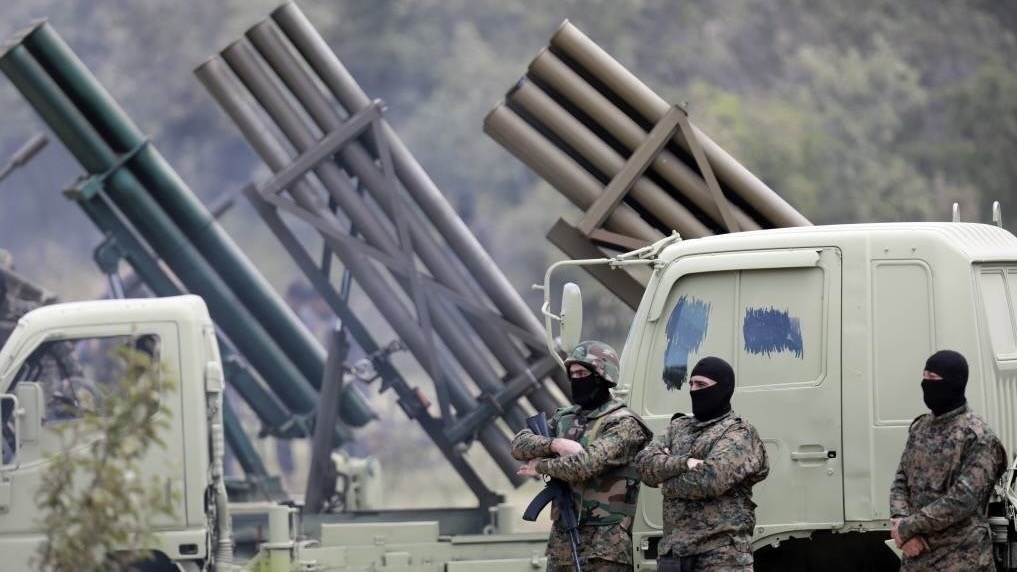Amid growing speculations that it will be forced to abandon its guarded responses to Israel’s repeated bombings and targeted killings inside Lebanese territories, Hezbollah continues to have measured restraint. However, Israel has intensified its efforts to provoke an escalation.
At least four Hezbollah fighters were killed in yet another Israeli attack in southern Lebanon on Monday, January 15. In response, Hezbollah fired missiles inside northern Gaza in which reportedly two Israelis were killed.
Israeli provocations have reached extreme levels in the last few weeks with scores of Hezbollah fighters being killed in Israeli drone or air strikes deep in southern Lebanon. So far, more than 130 people, including some Hezbollah fighters, have been killed in Israeli attacks inside Lebanon since the war began in Gaza. Israeli strikes have targeted civilian residential areas and even killed several journalists, some of them with evidence of having been killed deliberately.
Hezbollah field commander Wissam al-Tawil was killed on January 8 in one such Israeli strike. He was the highest ranking Hezbollah fighter to be killed by Israel since October 7.
One of the top leaders of Hamas, Saleh al-Arouri was killed in a drone attack in capital Beirut on January 2 along with several others.
Defying US warnings, Hezbollah had fully supported Palestinian people’s resistance in Gaza, claiming the attacks on October 7 were justified responses to daily oppression and atrocities Israel has been committing against them for 75 years.
Speaking to the public last week, Hezbollah chief Hassan Nasrallah had proclaimed that, “the land of Palestine… is solely for the Palestinians and no one else.” He also criticized the failures of the international community and international law to prevent Israel from carrying out genocide in Gaza.
More than 23,000 Palestinians have been killed and close to 60,000 wounded in Israeli air strikes and ground offensives inside Gaza since October 7. Israel has refused to listen to international calls for an unconditional ceasefire so far.
Hezbollah has been carrying out near daily counter attacks against Israeli occupation, targeting mostly military installations in northern Israel. Its attacks are designed to force hundreds of thousands of Israeli settlers to vacate their towns and cities in the north, rather than to cause civilian casualties.
Deliberate provocations
Hezbollah has termed the repeated Israeli attacks in Lebanon as deliberate provocations to drag Lebanon as well into the war as a part of Israeli strategy to find greater international support as well as providing prime minister Benjamin Netanyahu an opportunity to prolong his stay in power.
Nasrallah has warned repeatedly that such calculations may have catastrophic results for Israel and attempts to drag Hezbollah into the war would be “very costly” for it and its allies.
Nasrallah repeated his warnings against Israel’s close ally the US after it carried out attacks against Houthis in Lebanon. He reiterated that instead of provoking more wars in the region, the US should try and fix the main source of unrest, that is, the Israeli occupation of Palestine.
Hezbollah’s support for the Palestinian resistance has deep historical roots. Lebanon had been a base of Palestinian resistance during the 1970s and 1980s, while Hezbollah was born as resistance to Israeli occupation of Lebanese territories between 1981 and 2000. Hezbollah was the force responsible for Israeli forces withdrawing from southern Lebanon and ending their occupation in 2000.
Experts highlight that the Israeli government should not forget that Hezbollah also defeated Israel in 2006 and has grown much stronger since then, both militarily and politically.
Hezbollah in Lebanon is a part of a regional “Axis of Resistance” against Israeli occupation and imperialist interventions along with Houthis in Yemen and Popular Mobilization Forces (PMF) in Iraq. Both the Houthis and PMF have carried out several attacks against the US military bases and Israeli economic interests in the region in solidarity with Palestinian people and against the Israeli genocide in Gaza.





